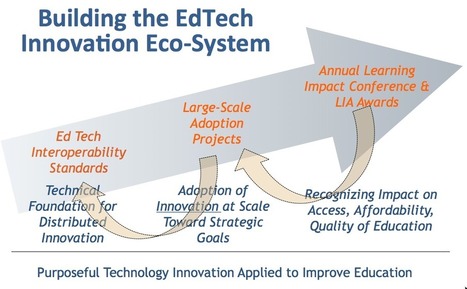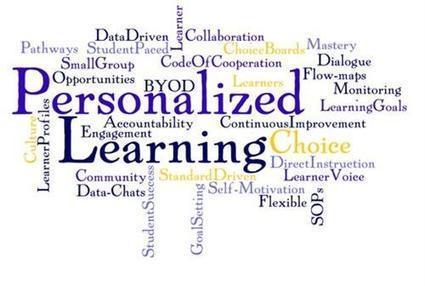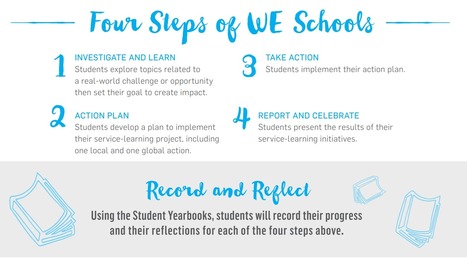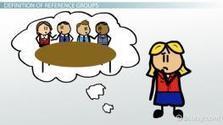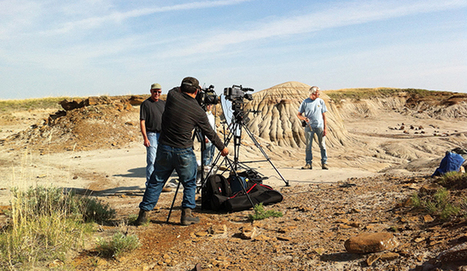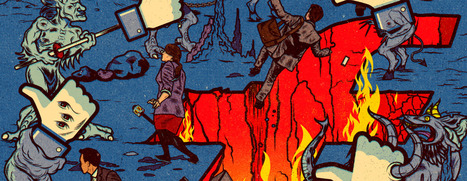 Your new post is loading...
 Your new post is loading...
"While most media is paying attention to commercial AI solutions provided by the likes of Google, Amazon, Baidu, Meta and OpenAI, there is also a thriving open source AI scene that has been making some noise in the last few days. First, we read that OpenAssistant is now live on reddit ..."
Via Leona Ungerer
This post from late February was referenced today in an email dfrom Rob Abel to IMS members updating them on the status of open badges patents. He references "a public listing of potential prior art generated by the Open Badges community" and also that "Pearson Acclaim pledged a royalty-free RAND license to any essential claims under a pending patent." More recently, "the patent office subsequently rejected some of the patent claims that are listed on the prior art spreadsheet." He also references "the strong support for the newly released OBv2 standard" that is the subject of this link.
Via Miloš Bajčetić, Jim Lerman, juandoming
I've said in the past that knowledge is recognition, and if I were pressed to describe what I think truth is, I would say that it is a strong feeling of recognition. This I think is consistent with what the early empiricists (like David Hume) would say. Formally, truth is an attitude toward a proposition: we say that a propositoon is 'true' or 'not true' and then try to explain that through an interpretation (such as Tarski's theory of truth, or model theory, or some such thing). That makes truth easier to work with, but only because it abstracts the messier reality. Having said all this, I think this puts me in accord with Iain McGilchrist, cited by Jenny Mackness in this article, when he says things like ‘No single truth does not mean no truth.’
Via Miloš Bajčetić
This article describes " some directions in which the future of testing may be headed." Included in the list (paraphrased): classroom-based assessment of authentic classroom work ("The anti-standardized testing group, FairTest, has developed a model to help guide state system innovations"); technology-enhanced items pushing testing toward greater real-world fidelity; continuous assessment by immersing students in complex problem-solving activities; inclusion and flexibility in test content and the interpretation and use of standards. As I've said before, I think that eventually we'll move beyond testing and simply base assessment on what students do in the world.
Via Miloš Bajčetić
Larry Berger "is exactly right that there is a fundamental problem with the assumptions behind what he calls the engineering model of personalized learning," writes Phil Hill. Berger argues that he "spent a decade believing in this model—the map, the measure, and the library, all powered by big data algorithms" but that ""the map doesn't exist, the measurement is impossible, and we have, collectively, built only 5% of the library." Hill reiterates his minority and irrelevant definition of 'personalized learning' as "teaching practices that are intended to help reach students in the metaphorical back row" but beyond that doesn't say more about Berger's commentary. And Berger's commentary is important, and importantly right.
Via Miloš Bajčetić
It's getting past time to be predicting what will happen in 2018 but I wanted to add one more here. This article talks about what needs to be done in 2018, and as such, is a useful contribution. Included in the list: being clear about what we mean when we talk about just-in time supports; changing the debate from 'technology bad-or-evil' to 'constructivism or behaviourism'; talk about accountability; talk about student networks; and look internationally for dusruptions in education. All good advice.
Via Miloš Bajčetić
This is an op-ed from Dave McKay, president and CEO of Royal Bank of Canada. We are entering a skills revolution, he writes, but Canadian students are not being prepared for the future. We need "people who work well with technology and work well with people – that can be the Canadian difference." He touts an RBC program called Future Launch - actually started last March using a system called Talentlink. Here's the content. The program also includes "a 'no résumé required' paid internship program, with selection based on skills, not work experience" in partnership with WE Schools, a UK-US-based charity (download the WE Schools kit).
Via Miloš Bajčetić
The short answer to this is "no". I work in a building full of academics who are not university professors and who are almost invisible on social media in any professional sense. I know hundreds of others in other government, corporate and private research facilities. Their careers are doing just fine. Joshua Kim argues that social media is pretty essential, though. "Alternative academics, lacking many of the traditional disciplinary-based assets that bind traditional academics (journals, conferences, professional organizations etc.), have seemingly adopted social media our medium of communication, collaboration, and exchange." The key word here is seemingly. You can't judge the world by what you see on Twitter. You just can't. Image: University Affairs.
Via Miloš Bajčetić
|
Two things are true. First: " Facebook makes money, in other words, by profiling us and then selling our attention to advertisers, political actors and others. These are Facebook’s true customers, whom it works hard to please." And second, "the same is true for the Times, along with every other publication that lives off adtech: tracking-based advertising." He then backs up this assertion with a detailed description of the tracking tools employed by news websites. Don't think for a minute that education is immune from this. You can't see the tracking tools in an LMS because the LMS is the tracking tool. Nothing prevents your educational institution (or the LMS vendor, if it's in the cloud) from packaging and selling detailed student data. Which means, most likely, that this is exactly what's happening.
Via Miloš Bajčetić
This is a very common position in the social sciences (including education): "“We can hold that any particular social entity at a given time and its causal powers are token identical with the sum of individuals composing it.” Or "it might well be true that each instance of a social kind - for example, a state structure - is identical with an ensemble of individual actors having certain properties." This paper examines, in detail, some of the arguments for and against this position. It is a tough analytical slog and may well take several hours to work though. The effort is worthwhile, however, as it raises (among many others) questions like 'at what point does an ensemble turn into a team?' And even, 'what makes a team a team?' This in turn raises questions like 'is teaching a class the same as teaching an individual?' and 'how do you assign responsibility for the actions of a group?'
Via Miloš Bajčetić
On the 10th anniversary of the first massive open online course, they are more numerous than ever.
In 2008, University of Manitoba professors Stephen Downes and George Siemens taught a course on learning theory that was attended by about 25 paying students in class and by another 2,300 students online for free. Colleague Dave Cormier at the University of Prince Edward Island dubbed the experiment a “massive open online course,” or MOOC.
Since then, this learning mode has been through a dynamic roller-coaster ride. It became an object of much hype (a 2012 New York Times article was titled “The Year of the MOOC”) and then faded from the scene (a 2017 Inside Higher Ed blog post decreed “MOOCs are ‘Dead’”).
Actually, on the 10th anniversary of that first MOOC, they’re still quite alive. “The numbers suggest MOOCs are, in fact, here to stay,” said Arshad Ahmad, vice-provost, teaching and learning, at McMaster University and director of the university’s MacPherson Institute for Innovation and Excellence in Teaching and Learning. Dr. Ahmad also teaches a five-course specialization MOOC called Finance for Everyone.
Via Miloš Bajčetić
I have from the beginning days of this newsletter been using the experience of traditional media as a touchstone on which to base my predictions for the learning and development sector. And I have also been saying that educational providers will one day face an overnight crisis that was 20 years in the making. The "armageddon" facing traditional news media serves as our guide. If you think about it, the threat to news media from social networks came out of nowhere. At the same time, social networks represent the most recent iteration of a movement that began with personal web pages and blogs. people still don't believe it, but traditional learning providers will be faces with a similar existential crisis. It will seem to have come from nowhere and be from a completely unexpected source. And the signs will have been there for 20 years.
Via Miloš Bajčetić
Alex Usher captures an item of significance in UBC's new strategic plan. "Under Draft Strategies for Transformative Learning (page 14) it says: ”Reframe undergraduate academic program design in competencies rather than credit hours: we will move towards competencies as a primary metric of program structure and completion." I think this is areflection of a wider trend. Usher advocates caution. "Trying to move an entire major institution from one system to another in one go is like trying to do wheelies in a Sherman tank." Actually it's not that hard tp pop a wheelie in a tank; you just have to be going fast enough (pictured).
Via Miloš Bajčetić
This is a more recent article from Benjamin Doxtdator on personalized learning (the previous one cited was from July). "Chomsky and Herman describe how five filters – media ownership, revenue through advertising, reliance on official sources, flak, and anticommunist ideology – shape not only the opinions expressed in the media, but the selection of what is newsworthy in the first place," he writes. "Here, I slightly modify their filters to examine how the venture philanthropy (specifically, The74 and EdSurge) media frames personalised learning."
Via Miloš Bajčetić
This is a set of three tools in Python and Excel to support content development in EdX MOOCs. One is a content modification tool, which basically automates cobtent import and export to make it easier to work with entire courses. The second uses a similar functionality to create a course content and outline tool. And the third automates bath uploading of YouTube files, including descriptions and metadata. You can find the tools in their GitHb repository.
Via Miloš Bajčetić
What does personal learning look like? Stephen Downes demonstrates the model he has developed over fifteen years of research on education technology and learni…
Via Ana Cristina Pratas, Jim Lerman
|



 Your new post is loading...
Your new post is loading...



